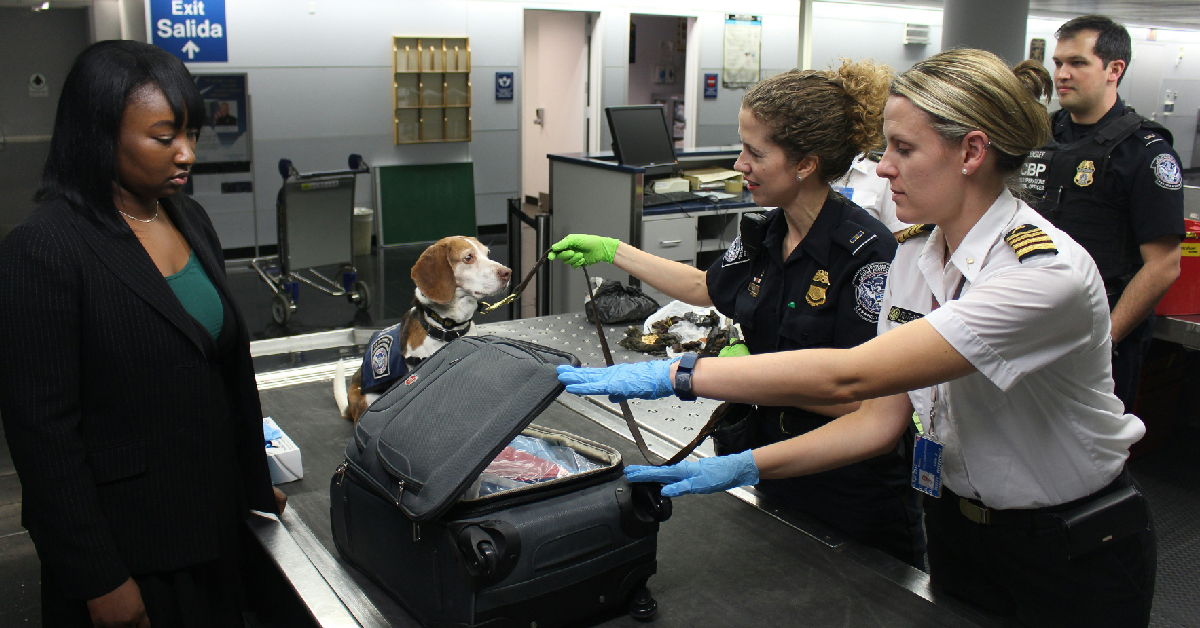A career in homeland security has never been more appealing. Currently, there is an increased need for trained experts who can defend our borders from cyber-attacks and prevent terrorist attacks.
Generally speaking, Homeland Security Degree programs cover a wide range of concepts and principles, and the ability to specialize in a specific area, such as computer science, cybersecurity, customs and border security, or criminal behaviors.
The typical curriculum may cover ethics, risk management, legal issues, security and privacy, cybersecurity, intelligence, and counterterrorism, as well as specialized courses.
But how do you choose the right Homeland Security program for your needs? The process can be challenging, but don’t worry this is exactly what we will discuss in this blog. Our goal is to provide you with information on all Homeland Security programs that can help you achieve your goals.
Who Needs a Homeland Security Degree?
The Department of Homeland Security was established after the terrorist attacks of September 11, 2001. Its mission is straightforward: to prevent illegal activity while facilitating lawful travel and trade across the country’s air, land, and sea borders.
A homeland security professional works to ensure that the nation’s citizens and properties are protected against dangers like terrorism, natural disasters, and public health issues. If you get a degree in homeland security, you may have the possibility of working in fields such as law enforcement, information security, infrastructure protection, intelligence analysis, and emergency management.
If an individual is interested in pursuing this career, they should enroll in a homeland security degree program.
What’s the Difference Between Emergency Management and Homeland Security Degree?
Some people might think studying for homeland security also prepares them for an emergency management career but this is a separate field that requires an in-depth study. Here is a difference between both.
| Homeland Security Degree | Emergency Management Degree |
| Professionals who have completed a Homeland Security degree program are primarily prepared to work in the Department of Homeland Security (DHS). DHS’s overall mission is to protect the United States against internal and external threats like terrorism, smuggling, cyber-attacks, and border illegal immigration. They employ individuals who specialize in these fields.
Whether you choose to help fortify government agencies, communities, transportation infrastructure, or computer systems as a focus of your graduate education, you will be contributing to this mission. |
Emergency management shares some similarities with a homeland security degree program, the course content is generally broader and applicable to both public and private organizations. During hurricanes, tornadoes, tsunamis, floods, earthquakes, fires, landslides, severe winter storms, droughts, and heatwaves, emergency managers analyze possible risks to organizations or communities and develop plans to minimize disruptions to essential functions while preserving lives and property.
A disaster management specialist works with public safety officials, nonprofits, and government agencies. Response and recovery strategies can be efficiently executed with a well-planned response. |
What Type of Degree is Needed for a Homeland Security Career?
You can earn a degree in Homeland Security from several colleges and universities to prepare for a career in the department. Here are some common ones:
-
Bachelors of Arts or Science
Many universities offer bachelor of arts degrees in homeland security, while others offer bachelor of science degrees in homeland security. Typically, a BS program places a greater emphasis on scientific courses than a BA program, where more focus is placed on humanities subjects. Most of these degrees have a four-year duration and provide a deeper level of study in the specified area.
While the curriculum covers the same essential topics, regardless of what degree a student chooses, it is mainly focused on counterterrorism, disaster management, protecting critical infrastructure, intelligence analysis, and cybersecurity.
-
Masters Degree
The master’s degree in homeland security is an advanced program than the bachelor’s. Upon graduation from a master’s program in homeland security, you will be prepared to move into a management-level position that protects our citizens, government, communities, and organizations. A major focus of this program is homeland defense, the regulation of security, laws and regulations, emergency management, environmental law, and disaster recovery.
Most master’s degrees in homeland security require between 18 months and two years of study full-time, with 30 to 36 credits. You may be required to complete a thesis or capstone project, depending on your chosen program.
What Are the Requirements of a Homeland Security Degree?
Colleges and universities have different homeland security degree requirements for admission to bachelor’s degree programs. Generally, you will need:
- Graduation from high school. The applicant must possess a high school diploma or a GED.
- Have a high grade point average (GPA). Some colleges require a grade point average of 3.5 or above in high school, while others accept students with a grade point average of 2.0 to 2.5.
- The prerequisites must be met. Some programs require you to meet specific mathematics or science prerequisites in order to be accepted. In some cases, you may be able to take these courses concurrently with your degree program.
- SAT scores must be at least the minimum. For admission to some schools, a minimum score on the SAT or ACT may be required.
Homeland Security Program Curriculum
Homeland security programs prepare students to analyze information, manage security, terrorist attacks, borderline risks, and natural disasters, and respond to emergencies. Furthermore, they acquire skills related to inter-agency and inter-governmental relations as well as critical infrastructure protection.
There are typically four years of full-time study required to complete a bachelor’s homeland security degree program and two years for a master’s degree. Students are provided with lectures, exercises, simulations, and case studies to prepare them for real-world application.
Here are some courses to consider when you enroll in a homeland security degree program.
Core Courses
Bachelor’s degree programs require students to complete 45-48 credit hours in core courses. Mind you, the name of some of these courses might vary from university to university but the overall course outcome is the same:
- Introduction to Homeland Security
- Information Security Fundamentals
- Introduction to Industrial Security
- Professional Skills in Homeland Security
- Law and Policy on Homeland Security
- Emergency Management Fundamentals
- Critical Infrastructure Security, Resilience, and Risk Analysis
- Planning and Making Decisions in Homeland Security
- Applied Research Methods in Security and Emergency Services
- Intelligence Studies
- Collecting and analyzing intelligence
- Terrorism and National Security Issues
- Environmental Security
- Emergent Topics in Homeland Security
- Homeland Security and Immigration
- Public Health Emergencies
- Exercise Design and Evaluation in Homeland Security
- Homeland Security Capstone
Elective Courses
Following core courses completion the students have a choice to choose their specialization among these options. Some universities require only 15-18 credit hours of elective courses for the degree:
- Introduction to Emergency Management
- Crime and Justice: An Introduction
- Police in American Society
- Media, crime, and myths
- Criminological Theory
- Courts and prosecution
- Criminal Justice Public Policy
- Comparative Criminal Justice
- Weapons of Mass Destruction
- Special Topics in Security Concerns
- Infections, diseases, and community health
- Race and Ethnic Relations
- History of Anglo-Saxon Policing
- Leadership and Management in Literature
Top 5 Colleges with the Highest Homeland Security Degree Acceptance Rates
Here are the best five colleges offering homeland security degrees with the highest acceptance rates:
-
DeSales University
DeSales University, an accredited Catholic university in, Pennsylvania, offers online programs in homeland security. This course covers topics such as cybercrime and cyberterrorism, critical infrastructure protection, digital forensics, and homeland security.
The final requirement for the degree is to complete a seminar that proves their knowledge in the field. If students wish they can complete both graduate and undergraduate homeland security programs here in five years and start a job after that.
- Degree Name: Accelerated Bachelor of Arts in Homeland Security
- Tuition: $520 per credit
- Total Credits: 120 credits
- Program Length: 4 years
- Type: Online
- Acceptance Rate: 77%
-
Embry-Riddle Aeronautical University
The Embry-Riddle University, founded in 1925, offers a bachelor’s homeland security degree online. There are two homeland security capstone courses and foundations of information security courses within the major. Through capstone courses, students will identify an off-campus client and use their research skills to solve a problem.
Students can choose either two minors or one minor and one 15-credit course block to focus their degrees. In addition to earning a bachelor’s degree, motivated students can also enroll in master’s-level courses during their bachelor’s degree program, speeding up the process of earning a master’s degree; students can complete a bachelor’s degree and a master’s degree within five years.
- Degree Name: BS in Homeland Security
- Tuition: $447 per credit
- Total Credits: 123 credits
- Program Length: 4 years
- Acceptance Rate: 70%
- Type: Online
-
Clayton State University
The Bachelor of Applied Science in Homeland Security program at Clayton State University is an interdisciplinary program. There are six concentration options available in Clayton’s Homeland Security Bachelor degree program, including Public Administration, Security Management, Organizational Leadership, Project Supervision, and Film Production. Graduates of Clayton’s bachelor’s program in homeland security must complete 120 credits, including 30 credits specific to their concentration.
A public university, Clayton State University was established in 1969 as a junior college. In the University of Georgia system, it is considered a senior member school.
- Degree Name: Bachelor of Applied Science in Homeland Security
- Tuition: $175 per credit (in-state): $650 (out-of-state)
- Total Credits: 120 credits
- Program Length: 4 years
- Acceptance Rate: 56%
- Type: On Campus
-
Campbell University
Campbell University offers two bachelor’s degree programs in Homeland Security, one in Science and one in Applied Science. The Homeland Security undergraduate degree program at Campbell University is the only program of its kind in North Carolina.
Students who pursue a degree may opt to take advantage of internship opportunities and graduate prepared for careers as Air Marshalls, Policy Analysts, Transportation Security Screeners, or Emergency Management Directors. Among the topics covered in the program are border security, emergency preparedness, and intelligence.
Campbell University was founded in 1887 by the Baptist State Convention of North Carolina. Approximately 7,000 students attend classes on Campbell University’s 15,00-acre rural campus, which is home to the private school. The school enrolls a greater number of North Carolina students than any other private college or university in the state.
- Degree Name: Bachelor of Applied Science or Bachelor of Arts in Homeland Security
- Tuition: $310 per credit
- Total Credits: 124 credits
- Program Length: 4 years
- Acceptance Rate: 88%
- Type: On Campus
-
SUNY Canton College
SUNY Canton offers a Bachelor of Technology degree in Homeland Security online. A major focus of the program is to help students prepare to handle natural disasters or terrorist acts. The graduates of this program have the option of pursuing employment at the Department of Homeland Security, Department of Justice, or intelligence agencies.
The program prepares students for a wide range of careers by providing a solid understanding of current security issues. The program outline includes fundamentals, threats, and new issues.
- Degree Name: Bachelor of Technology in Homeland Security
- Tuition: $295 per credit (in-state); $353 per credit (out-of-state)
- Total Credits: 122 credits
- Acceptance rate: 95%
- Program Length: 4 years
- Type: Online
Five Most Affordable Colleges for Homeland Security Degree Programs
Here are 5 most affordable colleges for homeland Security degree programs:
-
Sam Houston State University
BS in Homeland Security Studies by Sam Houston State is one of the most highly regarded online homeland security programs in the U.S., providing students with the flexibility of an online program and the quality of an in-class program.
It costs only $7,575 to complete this 36-credit master’s program. Students may apply in the fall or spring, and they must submit three letters of recommendation, transcripts, and a bachelor’s degree in a related field.
Students will gain knowledge about research methods in homeland security studies, laws and ethics in homeland security, and global perspectives. U.S. News and World Report ranks Sam Houston State’s online graduate criminal justice program as the best online graduate criminal justice program with its combination of cost, comprehensive curriculum, and excellent instructors.
- Degree Name: Bachelor’s Degree in Homeland Security Studies
- Tuition/Fees: $7,575
- Total Credits: 120 credit
- Program length: 4 years
- Type: On-campus
-
Columbia Southern University
The CSU offers a Bachelor of Science in Homeland Security at Orange Beach, Alabama. An undergraduate degree with 120 credits can be completed in four years for $7,050 per year for full-time students.
The entire program may be completed online in class, or through a hybrid approach. Students who are enrolled online will use Blackboard as a platform for submitting assignments, quizzes, tests, essays, projects, and communications.
For in-class students, the university offers flexible start times and schedules. The program also includes general core education courses required for all bachelor’s degrees, as well as courses on cybersecurity, critical infrastructure, cyber networks, and counterterrorism.
The majority of alums transition into roles related to emergency management, law enforcement, and business continuity.
- Degree Name: Bachelor of Science in Homeland Security
- Tuition/Fees: $7,050
- Total Credits: 120 credit
- Program length: 4 years
- Type: On-campus/ Online
-
University of Alaska Fairbanks
A bachelor of science degree in security and emergency management is available at the University of Alaska for $7,020, requiring 120 credit hours and taking four years when enrolled full-time.
UAF has an acceptance rate of 67% and a graduation rate of 34%, making its curriculum challenging. If you choose to take this program online, you will be able to use Canvas, a remote learning platform.
Most graduates go on to work as emergency management administrators, police officers, or first responders. During the curriculum, students learn about disaster response operations, emergency planning, and leadership in dangerous situations.
Emergency, disaster, public safety, homeland security, and counter-terrorism are the major subjects covered by the degree. Moreover, students may choose from one of the three concentrations: Cybersecurity, Information Technology Management, or Homeland Security.
- Degree Name: Bachelor of Security and Emergency Management
- Tuition/Fees: $7,030
- Total Credits: 120 credit
- Program length: 4 years
- Type: On-campus/ Online
-
Wichita State University
The Wichita State University offers a Bachelor of Science in Homeland Security that requires 120 credit hours to complete. Typically, the program can be completed in around four years with full-time study.
Graduates will be prepared for policy, management, and operation roles in crucial security agencies through the study of intelligence, physical security, and cyber security, among other courses. A graduate of the school must also complete a research or applied learning program, most often an internship.
- Degree Name: Bachelor of Science in Homeland Security
- Tuition/Fees: $6843
- Total Credits: 120 credit
- Program length: 4 years
- Type: On-campus/ Online
-
Trident University
Trident University offers the lowest tuition and fees for a homeland security program at $6,120. For ultimate flexibility, Trident University offers this degree online to its students. In this regard, Trident is a popular choice among working professionals who are unable to attend classes during the daytime.
The coursework was designed with consideration for all aspects of the Department of Homeland Security, which prepares graduates for the opportunities and challenges that await them in the future.
Aside from the foundational courses, students may specialize in logistics, leadership, emergency and disaster management, or cyber security.
- Degree Name: Bachelor’s in Homeland Security
- Tuition/Fees: $6120
- Credit requirements: 120 credit
- Program length: 4 years
- Format: Online
Best 5 Homeland Security Degree Programs With no GMAT/GRE Requirement
Here are some Homeland Security degree programs that require no GMAT or GRE tests for admission:
-
MS Homeland Security & Global Justice (Lasell University)
Lasell University’s Homeland Security and Global Justice program provides strong preparation for careers in federal law enforcement and international law enforcement.
Throughout this course, students will examine the causes and consequences of international and transnational crime, as well as the legal framework for preventing and controlling them. This course will cover issues related to international crime prevention, punishment, and control, including formal and informal cooperation between law enforcement agencies, mutual assistance, and extradition.
- Degree Name: MS Homeland Security & Global Justice
- Tuition/Fees: $24,300
- Total Credits: 36 credit
- Type: Online/On-campus
-
MS in Cyber and Homeland Security Administration (Fairleigh Dickinson University-Metropolitan Campus)
A Master’s degree in Cyber and Land Security Administration (MSCHSA) focuses on enforcing and ensuring cyber and land security from a practical and theoretical perspective. This program places a high priority on fostering leadership skills as well.
The courses include four mandatory courses: Weapons of Mass Destruction/Terrorist Awareness, Research and Policy Analysis, Strategic Planning, Implementation, and Evaluation with a thesis, as well as eight electives. Several specializations are available in this program, including practical and theoretical aspects of enforcing and ensuring homeland security.
- Degree Name: MS in Cyber and Homeland Security Administration
- Tuition/Fees: $21,312
- Total Credits: 36 credit
- Type: Online/On-campus
-
MS in Homeland Security (Wilmington University)
The master of science in homeland security program at Wilmington University will prepare you to deal with the ever-evolving challenges related to security. This program is available as a 100% online homeland security degree, allowing individuals working in the field of information assurance, law enforcement officers, and military personnel can earn a Master of Science degree in Homeland Security at a time and location that works best for them.
- Program Name: MS in Homeland Security
- Tuition/Fees: $16,104
- Total Credits: 33 credit
- Type: Online
-
MS in Homeland Security and Disaster Management (Liberty University)
The Master of Science in Homeland Security from Liberty University provides an overview of homeland security that is comprehensive, up-to-date, and multidisciplinary. A broad range of topics is covered, including public policy, public administration, law, criminal justice, and the social implications of terrorism.
Aside from national security strategies and homeland security directives, students will also study theoretical and practical aspects of emergency management, including human behavior in crisis situations.
- Degree name: MS in Homeland Security and Disaster Management
- Tuition/Fees: $22,504
- Total Credits: 36 credit
- Type: Online
-
MS in Public Safety Management (Southern Illinois University)
An M.S. in Public Safety Administration by SIU is designed to prepare students for advancement in their careers and to gain a deeper understanding of the responsibilities of leadership in public safety. The PSA curriculum emphasizes management and communication skills, while also taking into account the current career demands of those seeking higher education in the field of public safety.
In this program, students acquire enhanced problem-solving skills and knowledge of complex homeland security and public safety solutions, so that they are ready to assume leadership roles in related fields.
- Degree Name: MS in Public Safety Management
- Tuition/Fees: $12,899
- Total Credit: 30 credit
- Type: Online
What Kinds of Jobs Can I Get with a Homeland Security Degree?
With a homeland security degree, several career paths are opened to you. From becoming a customs officer or border patrol officer with an average salary of $69,000 per year to a high profile and senior role as an intelligence analyst whose average salary is $112,000 per year comparable to a cybersecurity specialist. Other careers include emergency management director, federal agent, and homeland security officer in the DHS.
Whichever jobs or roles you decide to adopt, you will find that a homeland security degree is worth the money and effort.
Conclusion
A career in Homeland Security is very promising. If you are interested in protecting your country from external and internal threats like terrorism, illegal immigration, cyber crimes, mafia crime, smuggling, and also from natural disasters like hurricanes and tornadoes then this is the right path for you.
We have listed every detail regarding the Homeland Security Degree Programs for your convenience along with top universities. We hope you find this guide helpful while choosing a degree program for your Homeland Security career.





